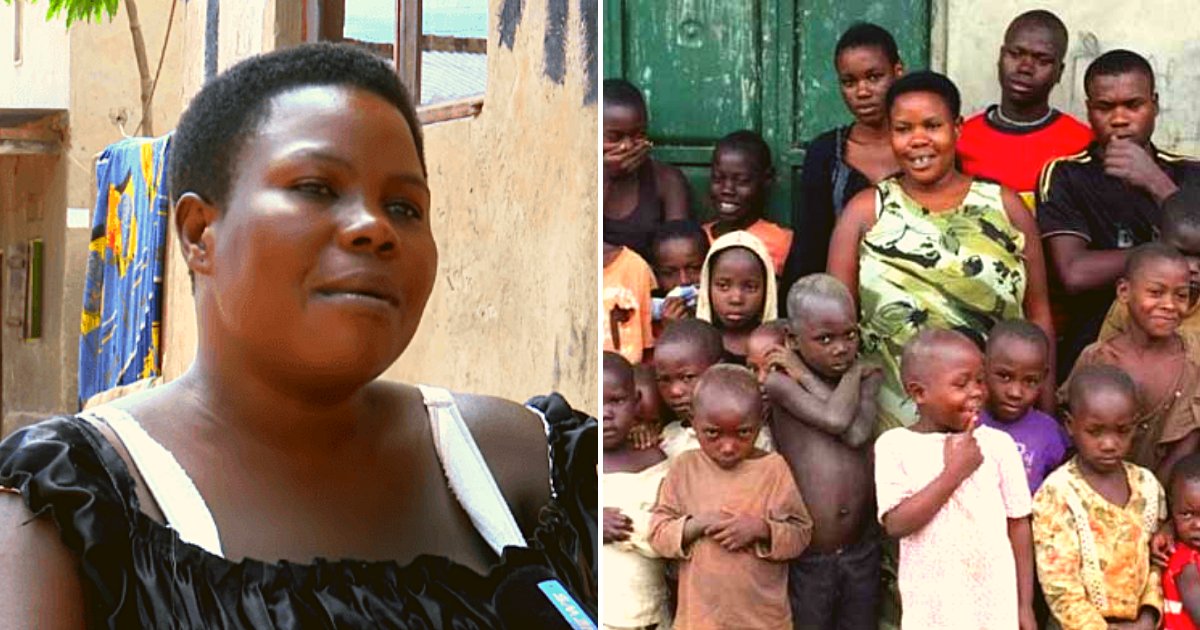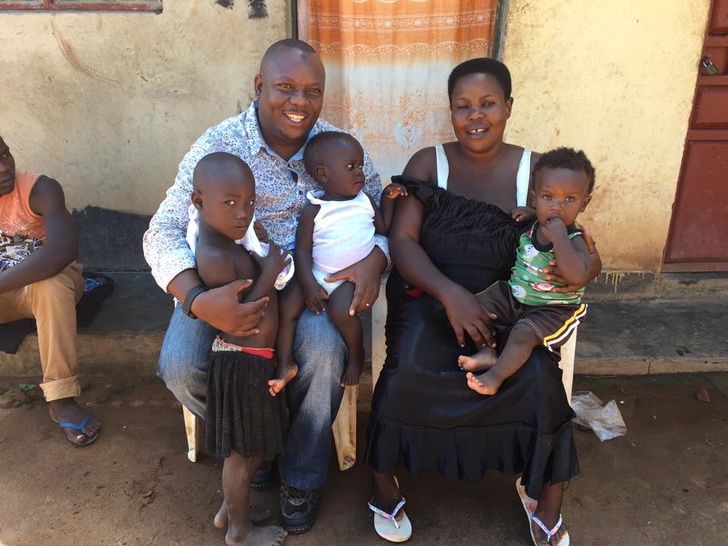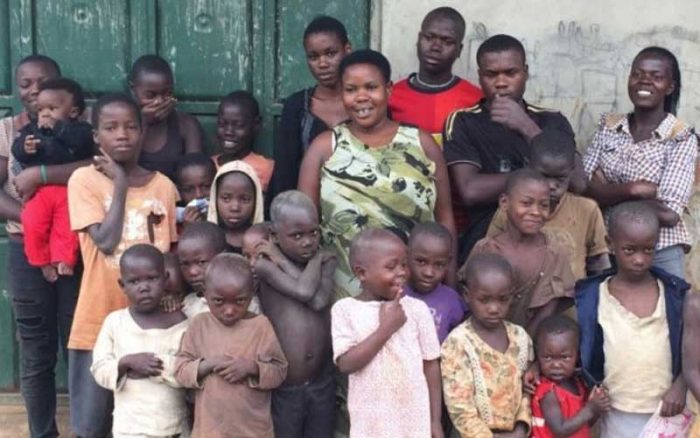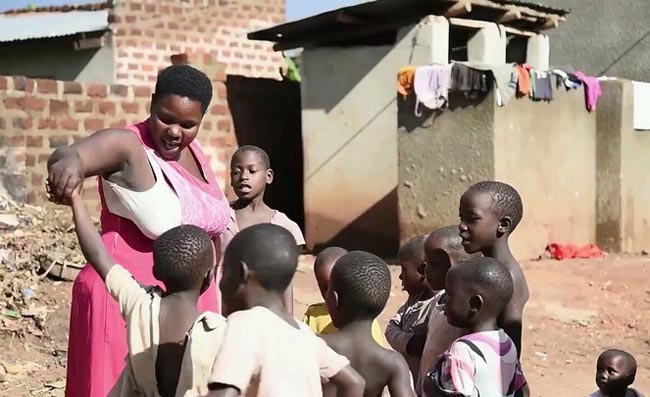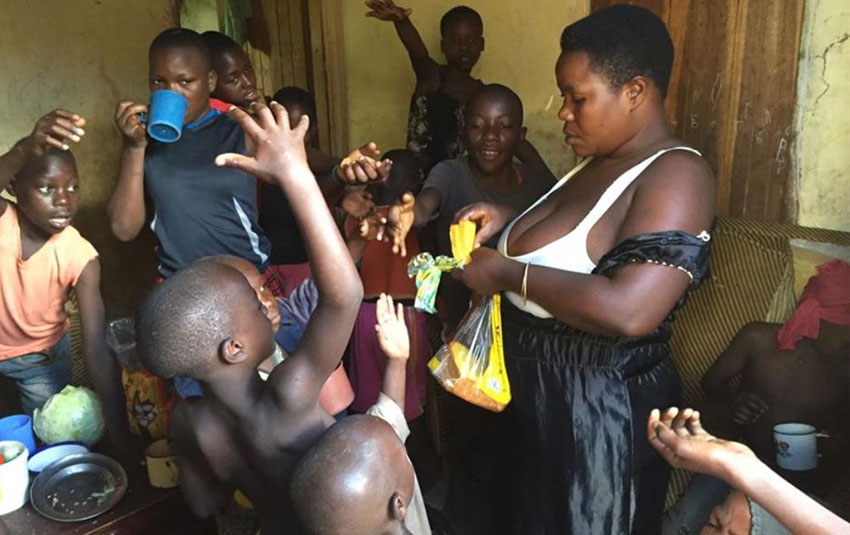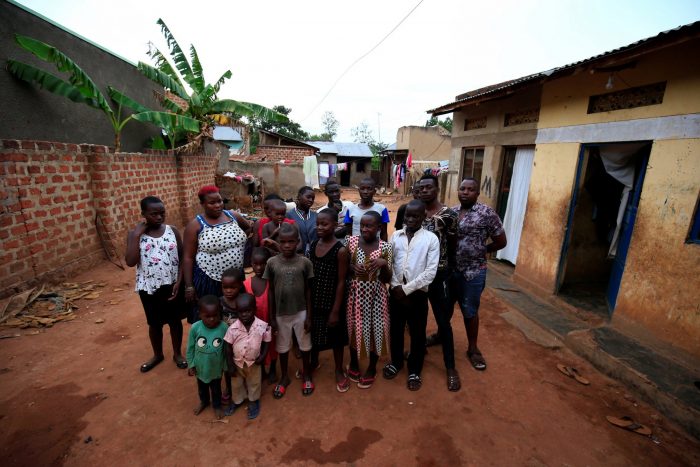A mother has given birth to more than 40 children, thanks to her abnormally large ovaries!
Mariam Nabatanzi from Uganda gave birth to twins just one year after she tied the knot at the age of 12. Five sets of twins followed along with five sets of quadruplets and four sets of triplets. Wow!
But three years ago, she was abandoned by her husband, leaving her to support their surviving 38 children alone. 6 of their children sadly passed away.
That was only the latest setback in a life flawed by tragedy for Nabatanzi, who lives with her surviving children in four small houses made of cement blocks and covered with corrugated iron in a town surrounded by coffee fields.
After giving birth to her first set of twins, Nabatanzi was told by a doctor she had unusually large ovaries. He advised her that birth control pills might cause health issues in the long run, so babies kept coming.
In Uganda, fertility rate averages out at 5.6 kids per woman, more than twice the average of 2.4 children, according to the World Bank.
Even in Uganda, Nabatanzi’s family size makes her a great outlier. Her last pregnancy had some complications and when she gave birth to her sixth set of twins, one of the babies died, her 6th child to die.
Her husband, who was always gone from time to time, decided to leave her with their surviving children. Nabatanzi refers to him using a swearword.
In an interview at her home, she said: “I have grown up in tears, my man has passed me through a lot of suffering.
“All my time has been spent looking after my children and working to earn some money.”
To survive, Nabatanzi turned a hand to everything: collecting and selling scrap metal, hairdressing, brewing local gin, event decorating and selling herbal medicine. The money she earned is used for clothing, medical care, food and school fees.
Her eldest child, 23-year-old Ivan Kibuka, had to drop out of secondary school when their savings ran out.
“Mum is overwhelmed, the work is crushing her, we help where we can, like in cooking and washing, but she still carries the whole burden for the family. I feel for her,” he expressed.
In one small room with grime-caked walls, twelve of her children sleep on metal bunk beds with very thin mattresses. In other rooms, their siblings pile onto shared mattresses while others rest on the dirt floor.
One day can require 25kg of maize flour, Nabatanzi said. Meat or fish are considered luxuries. Her greatest wish is for her children to be happy.
“I started taking on adult responsibilities at an early stage,” she said. “I have not had joy, I think, since I was born.”
What are your thoughts on this? Let us know in the comments section and SHARE this story with your family and friends!


